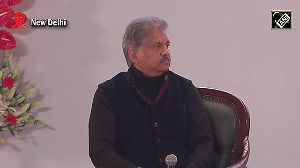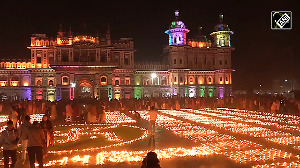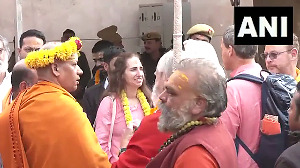Actor Dev Anand was on Tuesday chosen for the prestigious Dada Saheb Phalke Award for 2002.
President A P J Kalam will present the award, which carries Rs 200,000 in cash, a shawl and a 'swarn kamal' (golden lotus), to the 80-year-old actor on December 29.
He is the 34th recipient of the award.
Born on September 26, 1923, in Gurdaspur, Punjab, to a well-to-do advocate, Devdutt Pishorimal Anand, Dev Anand went on to graduate in English literature from Government College, Lahore.
His love for acting saw him leave his hometown and arrive in Mumbai.
After a flop debut with Hum Ek Hain in 1946, Dev Anand met Guru Dutt at Prabhat studio and struck a rapport.
His first success came with the film Ziddi (1948), and he never looked back again.
The year 1949 saw him turn producer and launch his own banner Navketan, which still churns out movies.
Though his maiden attempt at direction, Prem Pujari, flopped his sophomore effort Hare Rama Hare Krishna, with Zeenat Aman plying the pot-smoking protagonist, created a record of sorts.
His style of nodding his head turned into his USP as his films hit the box office, be it Munimji, CID, Paying Guest, Gambler or Tere Ghar Ke Saamne.
Despite tough competition from talented actors like Raj Kapoor and Dilip Kumar, Dev Anand maintained his fan following as he essayed the role of a son willing to go to any lengths in the film Kala Pani in 1958.
His iconoclastic performance was in Guide (1965), in which he played a hero with many a weakness and grey shades.
His film Johnny Mera Naam in 1970 was also a smash hit and it reconfirmed his romantic image.






 © 2025
© 2025